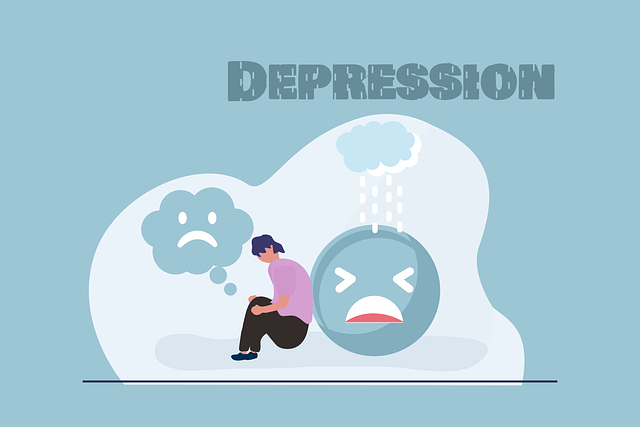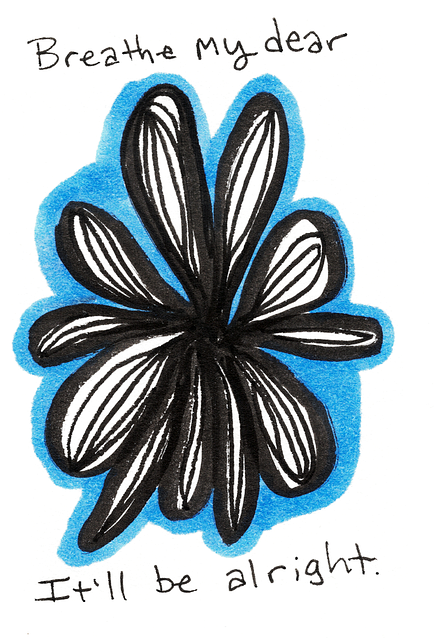In diverse Colorado Springs, cultural sensitivity is vital for successful mental healthcare, especially catering to polyamorous and open relationships. Therapists must navigate unique challenges like stigma, family dynamics, and communication issues through tailored coaching, training in cultural competency, and inclusive environments. Growing demand requires a revised Mental Health Policy Analysis with specialized services, education through workshops and podcasts, and strategies like active listening and continuous learning for therapists to build trust and encourage open communication, ensuring effective care for these communities.
In an increasingly diverse world, cultural sensitivity is paramount in mental healthcare. This article explores this crucial aspect, focusing on unique communities like Colorado Springs. We delve into the specific challenges faced by individuals in polyamorous and open relationships seeking therapy, highlighting the need for culturally competent practices. By examining these aspects, we aim to enhance understanding and improve access to effective mental health services, especially in the context of Colorado Springs Polyamorous and Open Relationships Therapy.
- Understanding Cultural Sensitivity in Mental Healthcare
- The Colorado Springs Context: A Unique Community Perspective
- Challenges and Considerations for Polyamorous and Open Relationships Therapy
- Strategies for Culturally Competent Practice in Diverse Communities
Understanding Cultural Sensitivity in Mental Healthcare

Cultural sensitivity is a cornerstone of effective mental healthcare practice, especially in diverse communities like Colorado Springs, known for its unique social dynamics, such as polyamorous and open relationships. It involves recognizing and appreciating the cultural differences that shape individuals’ experiences, beliefs, and behaviors related to mental wellness. This understanding allows healthcare providers to create safe, inclusive spaces where clients feel validated and respected.
At the heart of this approach lies the development of mental wellness coaching programs and training in healthcare provider cultural competency. By integrating Mind Over Matter principles, professionals can adapt their practices to meet the specific needs of diverse populations. This ensures that services are not only accessible but also culturally responsive, fostering meaningful connections and enhancing overall well-being for all individuals seeking support, regardless of their background or relationship preferences, such as those who identify as polyamorous in Colorado Springs.
The Colorado Springs Context: A Unique Community Perspective

Colorado Springs, known for its stunning natural landscapes and diverse communities, presents a unique context for mental healthcare practices. The city has a thriving polyamorous and open relationships community, which brings both opportunities and challenges for therapists. This vibrant subculture often seeks support for relationship dynamics that differ from the traditional norm, requiring specialized knowledge and sensitivity in therapeutic approaches.
Understanding the specific needs of this population is crucial. Many individuals in Colorado Springs’ polyamorous and open relationships therapy scene may face unique struggles related to social stigma, family dynamics, and communication patterns within their relationships. Therapists here need to be adept at conflict resolution techniques, promoting open dialogue, and fostering a safe space for clients to explore their identities without judgment. Additionally, mental wellness coaching programs tailored to these communities can empower individuals to navigate personal growth, self-acceptance, and improved relationship satisfaction through journaling exercises and guidance focused on enhancing self-awareness and communication skills.
Challenges and Considerations for Polyamorous and Open Relationships Therapy

In the diverse landscape of mental healthcare, attending to the unique needs of polyamorous and open relationships presents distinct challenges. Colorado Springs, with its vibrant mental wellness scene, is witnessing a growing demand for specialized services that cater to these non-monogamous communities. Therapists navigating this domain must be attuned to the cultural nuances and potential stigma associated with polyamory, ensuring a judgment-free zone is crucial for fostering trust and open communication.
Considerations extend beyond basic understanding; they involve integrating these relationships into therapeutic frameworks traditionally focused on monogamy. This shift demands an adaptive Mental Health Policy Analysis and Advocacy approach, encouraging healthcare institutions to offer specialized services or modifications within existing practices. Moreover, organizing Stress Management Workshops can provide a platform for education, breaking down misconceptions and promoting inclusive mental wellness Podcast Series Production, ultimately enhancing support systems for polyamorous individuals seeking therapy in Colorado Springs.
Strategies for Culturally Competent Practice in Diverse Communities

In the diverse communities of Colorado Springs, including those with polyamorous and open relationships, culturally competent practice is paramount. Therapists must be equipped to navigate complex cultural nuances to provide effective care. This involves understanding and respecting varied beliefs, values, and practices surrounding family structures, gender roles, and sexual orientation. For instance, integrating knowledge about polyamory and open relationships into therapy sessions can foster a safe space for clients to express their experiences without judgment.
Strategies for culturally competent practice include adopting conflict resolution techniques tailored to diverse communities, such as active listening and non-judgmental communication. Mental health professionals should also engage in continuous learning through workshops, trainings, and cultural competence courses to stay updated on best practices. Additionally, risk management planning is essential to address potential challenges that may arise when working with under-represented groups. Incorporating self-care practices for therapists is another vital component, as it enables them to provide genuine support while mitigating burnout and maintaining ethical boundaries.
In navigating the complex landscape of mental healthcare, particularly within the diverse communities of Colorado Springs, incorporating cultural sensitivity is no longer a consideration but a necessity. As evidenced by the unique challenges faced in polyamorous and open relationships therapy, understanding and respecting cultural contexts are key to effective treatment. By adopting culturally competent practices, professionals can ensure inclusive care that resonates with individuals from various backgrounds, including the vibrant polyamorous community in Colorado Springs. This approach not only enhances therapeutic outcomes but also fosters a more accepting and supportive environment for all mental health seekers.














